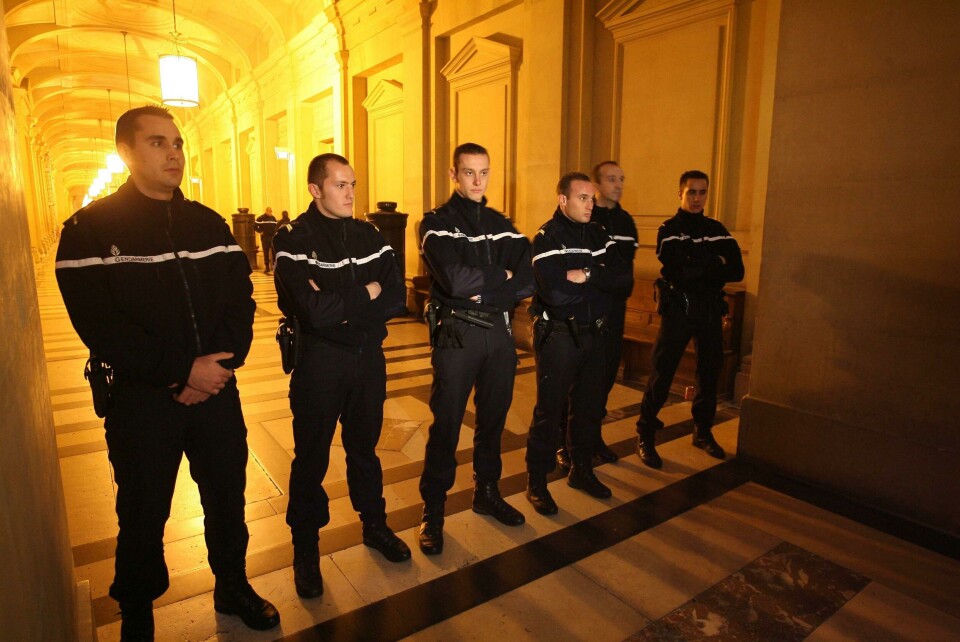-
How many Americans live in Paris - and where else are they choosing in France?
Over a quarter of all US nationals in France live in the capital city
-
Price rises for Netflix in France
The Standard (with ads) and Premium packages are increasing by €24 a year
-
Leclerc supermarkets to sell car fuel at cost price for Easter
The initiative will apply to diesel, petrol, and LPG
Why are there angry protests against the French state in Corsica?
Demonstrators have targeted institutional buildings following an attack on an independence militant convicted of assassinating a prefect in 1998

Several police officers and members of the public were injured in an attack on Ajaccio’s law court yesterday (March 9) amid protests which have been taking place in Corsica this week.
The demonstrations are in support of Yvan Colonna, a Corsican independence militant condemned to life imprisonment for the assassination of Corsica’s then prefect Claude Erignac in 1998.
Colonna is in a coma following an attempt on his life in Arles prison on March 2.
Demonstrators attacked several public buildings over the week to the call of ‘Statu francesu assassinu’ (‘the French state is a murderer’ in Corsican), claiming that the state and the prison’s lack of vigilance were to blame for the attack.
Protesters also denounced the ‘détenu particulièrement signalé’ prison status attributed to Colonna which prevents him from being incarcerated in his homeland Corsica.
The state gave him the status for fear of escape after he was on the run for four years following Mr Erignac’s assassination. He was eventually captured.
The status triggers stricter controls on inmates whose behaviour is deemed to be particularly violent or dangerous, or who are thought to be more likely to escape.
Colonna was incarcerated at various prisons in mainland France because the government feared any evasion from a Corsica prison could significantly disrupt public order.
Prime minister Jean Castex reportedly dropped the status on March 8 in a bid to de-escalate the situation.
Read more:State ‘must now take Corsicans seriously’
The assassination of Mr Erignac was ordered by an independence movement that campaigned for the separation of Corsica from France. It shocked the nation at the time, Claude Erignac being the first ever prefect to have been killed while serving office in France.
Colonna is one of the most prominent independentist figures of Corsica, an island where independence movements are among the most fearless and violent in France.
‘Despicable assassination’
The ‘80s and ‘90s were two decades characterised by tensions and attacks by movements pushing for Corsica to detach itself from France, a country it accused of colonialism within the island.
Colonna, a shepherd living on the coast in the centre of Corsica, was a member of the National Liberation Front of Corsica (NLFC), one of the most prominent nationalist movements on the island.
The NLFC and nationalists members were believed by police to be responsible for several attacks, including the bombing of the Ecole Nationale d’Administration (ENA) in Strasbourg in 1997, the bombing of the Majestic Hotel in Vichy in 1997 and the hostage taking situation of the police gendarmerie of Pietrosella on September 6, 1997, in Corsica.
The escalations culminated on February 6, 1998 when the prefect Claude Erignac, sent by the government to restore order on the island, was assassinated. He was shot in the neck and the head by three nationalists while attending a late-night opera concert in Ajaccio.
“This unspeakable and despicable assasination strikes the nation to its core,” said then-prime minister Lionel Jospin, amid condemnation from across the political spectrum and demonstrations in Corsica in support of Mr Erignac.
Read more:Assassination plots, Coco Chanel: Tales of two French ‘grands cafes’
Colonna’s name was eventually revealed by nationalists who had been investigated by police forces for over 18 months but he then disappeared into the Corsican mountains upon arrest by police on May 23, 1999.
He was captured on July 4, 2003 near Olmeto and transferred the following day to the La Santé prison in Paris.
Détenu particulièrement signalé status
Colonna has always pleaded not-guilty to charges of participation in the assassination.
His lawyer pleaded his case in three different trials between 2006 and 2009 before taking it to the European Court of Human Rights in 2013 to protest against the life imprisonment sentence he received on all three occasions.
Colonna has been serving his sentence in Fresnes, Toulon, Arles, and was transferred to Réau in Seine-Maritime for several weeks on one occasion after he was suspected of an evasion attempt with the help of explosives.
He has been incarcerated in Arles prison, in southern France, since 2013.
The government also immediately put Colonna under the ‘détenu particulièrement signalé’ prison status.
Some 350 of the more than 70,000 people in prison have been placed under this tightened security regime, according to figures provided by the Ministry of Justice in 2019.
The status meant Colonna could not be transferred into a Corsica prison, a ruling which he contested.
The assassination attempt is under investigation by police forces.
The attacker, a 35-year-old Franco-Cameroonian who fought in Afghanistan, is believed to have acted for religious purposes, according to French newspaper JDD.
He is indicted for attempted murder with relation to a terrorist organisation.
Related articles
Paris trial over jihadist murder of French priest in 2016 begins today
Religious cartoons planned as France honours Samuel Paty
Edmond Simeoni and the wishes of Corsica
























